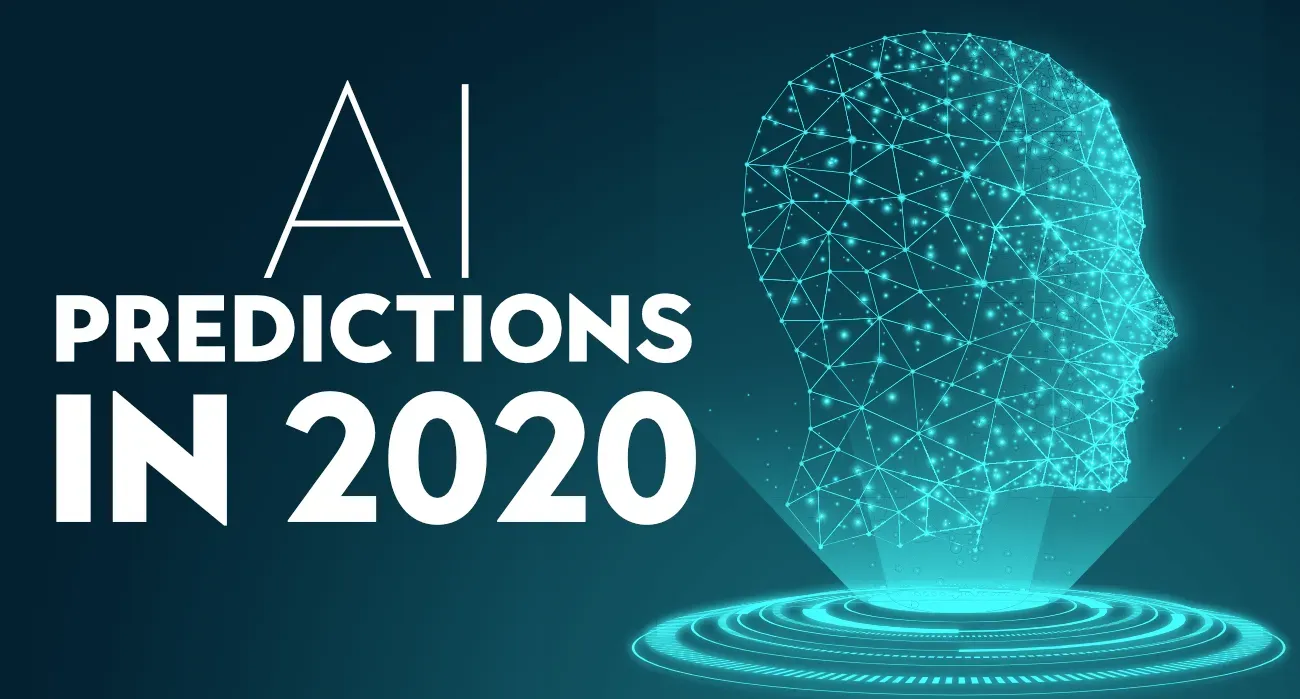AI predictions are revolutionizing the way we understand and interact with technology. As we delve into the realm of Artificial Intelligence predictions, it becomes clear that these advanced algorithms are not just guessing; they are utilizing vast amounts of data to forecast outcomes across various sectors. From AI in healthcare predicting patient diagnoses to financial models forecasting stock trends, the impact of AI technology advancements is profound. As we explore how AI works, we uncover its potential in shaping the future of AI, offering insights that were once unimaginable. This guide will illuminate the fascinating world of AI predictions and their transformative role in our daily lives.
The concept of predictive analytics in artificial intelligence is reshaping industries and enhancing decision-making processes. By employing sophisticated algorithms, these technological innovations can analyze historical data to forecast future trends with remarkable accuracy. Whether in the realm of medical diagnostics or financial analysis, the integration of AI tools is paving the way for smarter solutions. As we investigate the advancements in machine learning, we see how these capabilities are contributing to the evolving landscape of AI applications. This discussion will highlight the significance of predictive technologies in not just understanding but also anticipating future challenges and opportunities.
The Science Behind AI Predictions
AI predictions are grounded in sophisticated algorithms that analyze vast amounts of data to identify patterns. These algorithms, which are at the core of how AI works, enable machines to learn from past experiences and make informed guesses about future events. As technology advances, the precision of these predictions improves, leading to more reliable outcomes across various sectors, from healthcare to finance.
For instance, in healthcare, AI predictions can analyze patient data to forecast disease outbreaks or even suggest personalized treatment plans. By leveraging historical data and real-time information, AI systems can provide insights that help healthcare professionals make better decisions, ultimately leading to improved patient outcomes. This intersection of artificial intelligence and healthcare showcases the incredible potential of AI technology advancements.
AI Predictions in Healthcare
The integration of AI predictions in healthcare has revolutionized how medical professionals approach diagnosis and treatment. By using machine learning algorithms, healthcare providers can analyze patient data to identify potential health risks before they become critical issues. This proactive approach not only improves patient care but also helps in managing healthcare costs effectively.
Moreover, AI predictions facilitate the creation of tailored treatment plans based on individual patient profiles. For example, AI systems can analyze genetic data alongside lifestyle factors to predict how patients will respond to certain medications. This level of personalization is a significant advancement in the future of AI, promising better health outcomes and a more efficient healthcare system.
Current Applications of AI Predictions
AI predictions are currently shaping numerous industries by enhancing operational efficiency and customer experience. In retail, businesses utilize AI to forecast consumer behavior, enabling them to optimize inventory and tailor marketing strategies. By predicting which products will be in demand, retailers can reduce waste and increase sales, illustrating the practical benefits of AI technology advancements.
Additionally, the financial sector heavily relies on AI predictions to assess risks and forecast market trends. Investment firms use AI algorithms to analyze stock performance and economic indicators, allowing them to make informed decisions. This not only enhances the accuracy of financial predictions but also promotes a more stable economic environment, showcasing the transformative impact of artificial intelligence in finance.
The Future of AI Predictions
As we look towards the future, AI predictions are expected to evolve significantly, with the potential for groundbreaking advancements. Experts predict that AI will not only enhance existing capabilities but will also uncover new possibilities, such as predicting natural disasters or personalizing learning experiences in education. These developments could fundamentally change how we interact with technology and perceive the world around us.
The integration of AI with other emerging technologies, such as the Internet of Things (IoT) and quantum computing, will further amplify its capabilities. For instance, smart homes powered by AI predictions could anticipate household needs, making daily life more convenient. This convergence of technologies signals an exciting era for AI, where its potential to improve quality of life becomes even more pronounced.
Ethical Considerations in AI Predictions
With the rapid advancements in AI predictions, ethical considerations have become paramount. Data privacy and security are critical issues, as AI systems often rely on vast amounts of sensitive information. Ensuring that personal data is protected and used responsibly is essential to gain public trust and hold AI systems accountable.
In addition to privacy concerns, addressing bias in AI predictions is crucial. If AI systems are trained on biased data, the predictions they make can reflect those biases, leading to unfair outcomes. Therefore, it is imperative to implement measures that promote fairness and transparency in AI development, ensuring that these powerful tools benefit everyone equally.
Implementing AI Predictions in Business
Businesses across various sectors are increasingly recognizing the value of AI predictions in enhancing decision-making processes. By analyzing consumer data and market trends, companies can leverage AI to anticipate customer needs and optimize their operations. For example, retailers can use AI to predict sales trends and adjust their inventory accordingly, leading to cost savings and improved customer satisfaction.
Moreover, implementing AI predictions can provide businesses with a competitive edge. Companies that harness the power of AI technology advancements can stay ahead of market trends, allowing them to innovate and adapt rapidly. As industries continue to evolve, those that embrace AI predictions will be better positioned to succeed in a fast-paced business environment.
Case Studies of AI Predictions Success
Numerous organizations have successfully implemented AI predictions to enhance their operations. For instance, Netflix utilizes AI algorithms to analyze viewer preferences and recommend content tailored to individual tastes. This personalized approach has significantly improved user engagement and retention, demonstrating how AI predictions can directly impact business success.
Another compelling example is Amazon, which employs AI to optimize its supply chain and predict customer purchasing behavior. By analyzing past purchase data and browsing patterns, Amazon can anticipate demand and streamline its inventory management. This not only enhances operational efficiency but also ensures that customers receive the products they want, showcasing the transformative power of AI predictions in retail.
The Role of AI in Shaping Future Job Markets
As AI technology continues to advance, its impact on job markets will be profound. While some jobs may become obsolete due to automation, new opportunities will emerge, requiring a workforce skilled in AI-related technologies. This shift emphasizes the importance of education and training to equip individuals with the skills necessary to thrive in an AI-driven economy.
Moreover, the integration of AI in various industries will create demand for roles that focus on managing and interpreting AI systems. Professionals who understand how AI predictions work and can apply them effectively will be highly sought after. As we prepare for the future of work, fostering a culture of continuous learning will be crucial to adapt to these changes.
Preparing for an AI-Driven Society
To navigate the evolving landscape shaped by AI predictions, individuals and organizations must prioritize education and awareness. Understanding the fundamentals of AI and its applications is essential for everyone, from students to industry leaders. By embracing ongoing education in science, technology, engineering, and mathematics (STEM), society can better prepare for the challenges and opportunities presented by artificial intelligence.
Furthermore, businesses should proactively explore how they can implement AI predictions to improve their services and operations. By investing in AI technology, companies can enhance their efficiency and customer satisfaction, ensuring they remain competitive in a rapidly changing market. Governments also play a crucial role by establishing regulations that promote ethical AI use and protect citizens’ rights.
Frequently Asked Questions
What are AI predictions and how do they work?
AI predictions are forecasts made by artificial intelligence systems based on analyzing large sets of data. These predictions utilize algorithms to identify patterns and draw insights from historical information, enabling AI to make informed guesses about future events, such as weather forecasts or stock market trends.
How is AI used in healthcare predictions?
AI technology advancements have significantly improved healthcare predictions by analyzing patient data to identify potential diseases early. For example, AI algorithms can process medical images or genetic information to predict health issues, allowing for timely interventions and personalized treatment plans.
What is the future of AI predictions in various industries?
The future of AI predictions looks promising across various sectors. In finance, AI will enhance investment strategies by predicting market trends. In retail, it will enable businesses to tailor marketing strategies based on consumer behavior. Overall, AI is expected to revolutionize how industries operate by providing data-driven insights.
What challenges do AI predictions face?
AI predictions can be limited by the quality of data used for training. Biased or inaccurate data can lead to flawed predictions. Additionally, there are ethical considerations regarding data privacy and the potential for AI to reinforce existing biases, necessitating ongoing improvements in AI technology.
How does AI improve the accuracy of predictions?
AI improves prediction accuracy through advanced algorithms and machine learning techniques that allow systems to learn from new data continuously. As AI technology advances, it can analyze more complex datasets, leading to more precise and reliable predictions in various fields.
What role does AI play in predicting natural disasters?
AI is becoming increasingly important in predicting natural disasters by analyzing environmental data, historical patterns, and real-time information. Machine learning models can forecast events like hurricanes or earthquakes, providing critical alerts that can save lives and reduce damage.
How can businesses leverage AI predictions for success?
Businesses can leverage AI predictions by integrating them into their decision-making processes. By analyzing customer data and market trends, companies can optimize inventory, enhance marketing strategies, and improve customer experiences, ultimately leading to increased efficiency and profitability.
What ethical concerns arise from AI predictions?
Ethical concerns surrounding AI predictions include data privacy, potential biases in AI algorithms, and the need for transparency in how predictions are made. Ensuring that AI systems are accountable and fair is crucial for maintaining public trust in AI technology.
What is the impact of AI predictions on employment?
AI predictions are likely to transform the job market by automating certain tasks, leading to job displacement in some areas. However, they will also create new job opportunities in AI development and management, making it essential for individuals to adapt and acquire new skills.
How can we prepare for the future of AI predictions?
To prepare for the future of AI predictions, individuals and businesses should invest in education and training related to AI and data analysis. Understanding AI technology will be crucial for leveraging its capabilities and ensuring ethical practices in its implementation.
| Section | Key Points |
|---|---|
| Introduction | AI empowers machines to think and solve problems, significantly impacting our world. |
| Understanding AI Predictions | AI predictions are guesses made by computers based on patterns learned from data. |
| How AI Predictions Work | AI uses large data sets and algorithms to identify patterns and make predictions. |
| Real-world Applications | AI is used in healthcare, finance, retail, and autonomous vehicles. |
| Challenges and Limitations | AI predictions can be inaccurate if based on poor data and may have biases. |
| AI Future Predictions | AI is expected to improve and predict things like natural disasters and disease cures. |
| Preparing for the AI Future | Learning about AI and ethical guidelines is essential for adaptation. |
| Ethical Considerations | Focus on data privacy, bias, fairness, and accountability in AI systems. |
| Implementing AI in Business | Businesses can leverage AI predictions for better decision-making and efficiency. |
Summary
AI predictions are revolutionizing how we interact with technology and anticipate future events. As we continue to develop and integrate AI into various sectors, it is crucial to understand its capabilities, limitations, and ethical implications. The future of AI holds immense potential, and with responsible usage, it can lead to significant advancements that enhance our daily lives and create a smarter, more efficient world.








